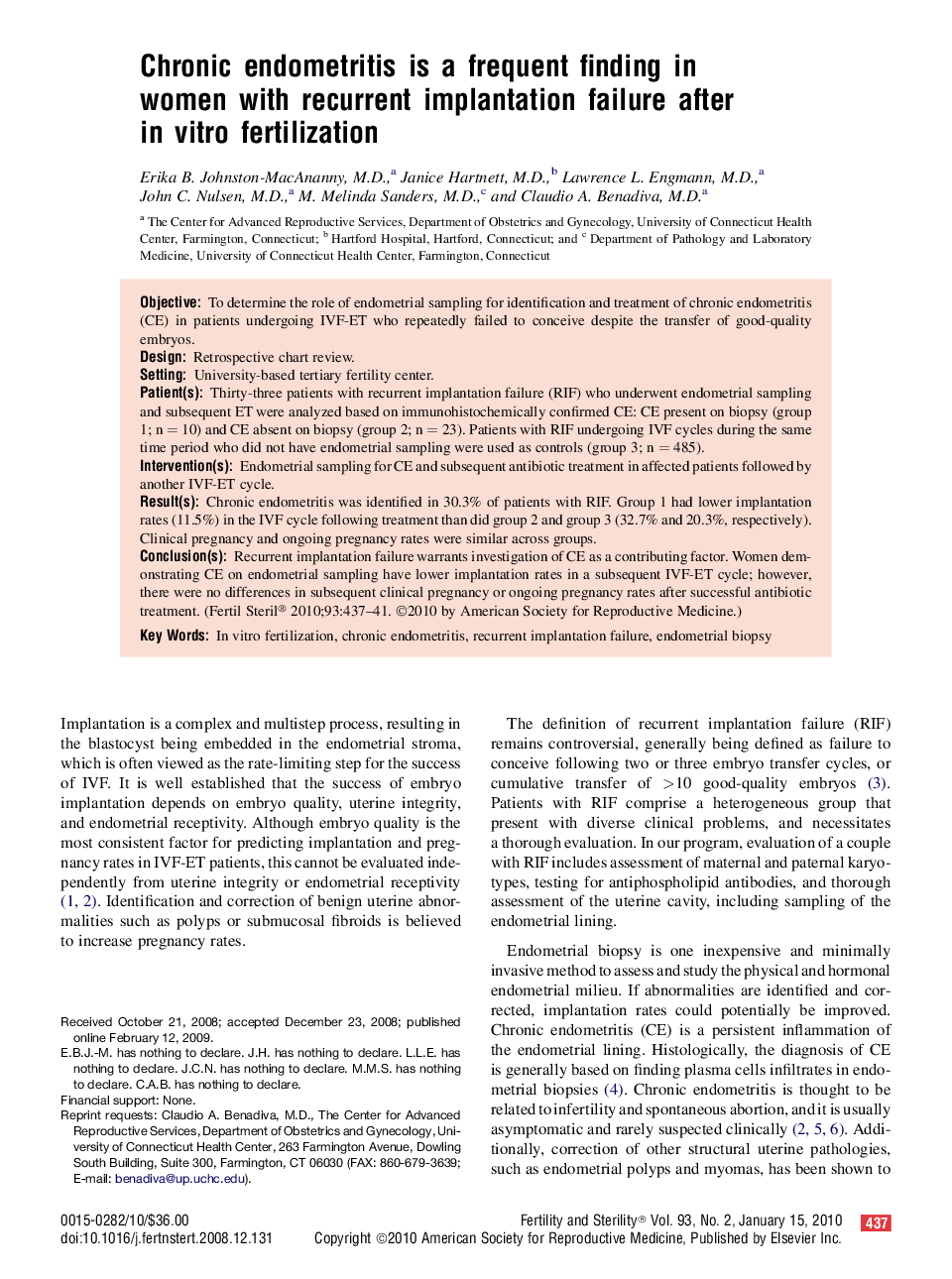| Article ID | Journal | Published Year | Pages | File Type |
|---|---|---|---|---|
| 3933656 | Fertility and Sterility | 2010 | 5 Pages |
ObjectiveTo determine the role of endometrial sampling for identification and treatment of chronic endometritis (CE) in patients undergoing IVF-ET who repeatedly failed to conceive despite the transfer of good-quality embryos.DesignRetrospective chart review.SettingUniversity-based tertiary fertility center.Patient(s)Thirty-three patients with recurrent implantation failure (RIF) who underwent endometrial sampling and subsequent ET were analyzed based on immunohistochemically confirmed CE: CE present on biopsy (group 1; n = 10) and CE absent on biopsy (group 2; n = 23). Patients with RIF undergoing IVF cycles during the same time period who did not have endometrial sampling were used as controls (group 3; n = 485).Intervention(s)Endometrial sampling for CE and subsequent antibiotic treatment in affected patients followed by another IVF-ET cycle.Result(s)Chronic endometritis was identified in 30.3% of patients with RIF. Group 1 had lower implantation rates (11.5%) in the IVF cycle following treatment than did group 2 and group 3 (32.7% and 20.3%, respectively). Clinical pregnancy and ongoing pregnancy rates were similar across groups.Conclusion(s)Recurrent implantation failure warrants investigation of CE as a contributing factor. Women demonstrating CE on endometrial sampling have lower implantation rates in a subsequent IVF-ET cycle; however, there were no differences in subsequent clinical pregnancy or ongoing pregnancy rates after successful antibiotic treatment.
